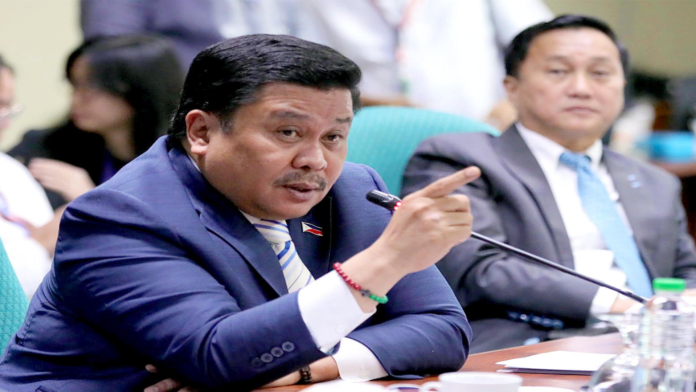Senator Jinggoy Estrada on Thursday pushed for the passage of his bill mandating all local government units (LGUs) set aside a portion of their national tax allotment share for free medicines for indigent patients.
“Kadalasang libre ang konsultasyon at hospitalization sa mga pampublikong ospital, health care centers o clinics. Pero nawawalan naman ng saysay ang pagkunsulta nila sa mga doktor o pagpapagamot dahil sa kakapusan sa pambili ng mga inireseta sa kanila na mga gamot (Usually, consultation and hospitalization in public hospitals, health care center or clinics are free. But it is useless due to the lack of money to buy the prescribed medicines),” Estrada said in a news release.
In his Senate Bill No. 1029 filed in August 2022, Estrada proposed to require LGUs to earmark a portion of their National Tax Allotments (NTA) for appropriation for free medicines to be distributed to the public hospitals, clinics, pharmacies, or other outlets to indigent patients in their localities.
Under Section 284 of Republic Act No. 7160, otherwise known as the Local Government Code, local government units are entitled to a 40 percent share of the national revenue taxes, also known as the Internal Revenue Allotment (IRA), which is now referred to as NTA.
The NTA of local government units is the quick source of funding for free medicines for the benefit of indigent patients in their localities.
Studies showed that medicines in the country are five to 30 percent more expensive compared to other countries in Asia making it more difficult for indigent patients to access needed medicines.
To ensure access to free medicines, Estrada said government hospitals and clinics will be required to establish their pharmacy or outlets for dispensation.
The LGUs, local social welfare department, and barangay officials shall identify and maintain a list of indigent patients to ensure the free medicines are properly dispensed to deserving recipients, he said.
Imprisonment of two to seven years will be meted against those who will manufacture a list or issue certifications to fake indigent patients, Estrada said.
The same penalty will be imposed against those involved in irregularities in the acquisition and distribution of free medicines, he added.
Last Tuesday, the Bureau of Internal Revenue announced the exemption of 21 medicines for cancer, diabetes, hypertension, kidney disease, mental illness, and tuberculosis from value-added tax (VAT).
Health Secretary Teodoro Herbosa welcomed the BIR decision that would benefit more Filipinos.
He said the VAT exemption is also very important in lowering the price of the medicine.
In 2023, the BIR also exempted a total of 59 medicines from VAT to ease the financial burden of Filipinos taking medications to improve their health conditions and quality of life. These included “maintenance” drugs for diabetes, high cholesterol, and hypertension. (PNA)


